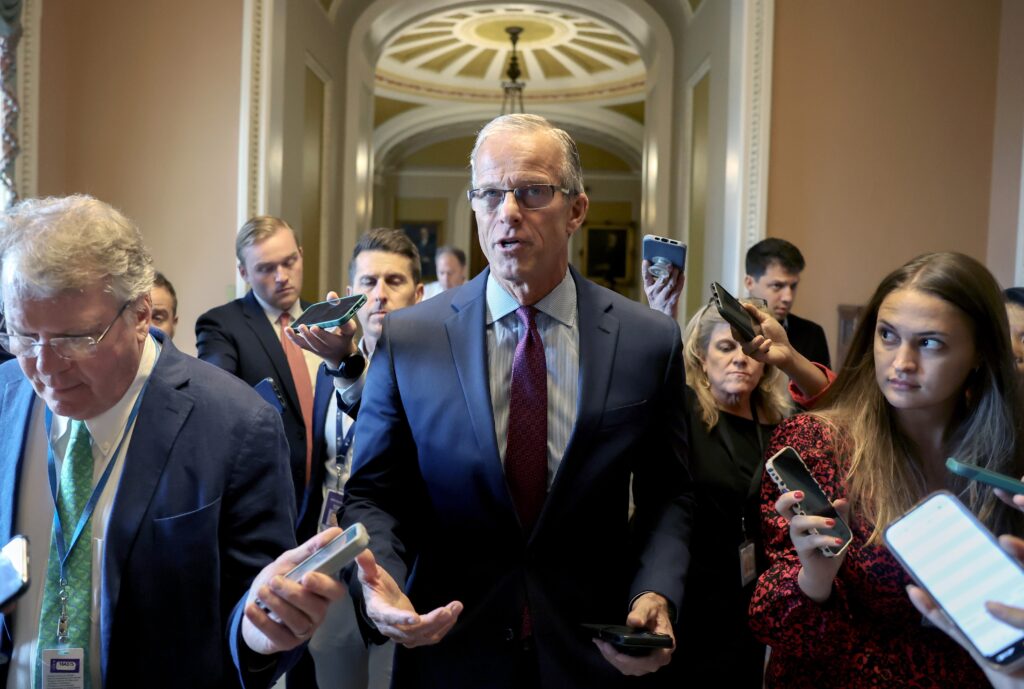U.S. Senate Majority Leader John Thune, R-S.D., speaks to reporters at the Capitol as lawmakers work on the One Big Beautiful Bill Act on June 25, 2025 in Washington, D.C. (Photo by Joe Raedle/Getty Images)
WASHINGTON — The U.S. Senate voted Thursday to approve dozens of nominees, acting on a rule change GOP leadership made last week that allows the chamber to confirm some of the president’s appointees in large batches instead of one at a time.
The 51-47 vote followed weeks of debate over whether senators could work out a deal on groups of nominees, with Democrats warning along the way that any changes to Senate procedures that benefit the Trump administration now will likely aid a future Democratic president.
“What Republicans have done is chip away at the Senate even more to give Donald Trump more power and to rubber-stamp whomever he wants, whenever he wants them, no questions asked,” Senate Minority Leader Chuck Schumer said last week after Republicans initiated the rule change.
Senate Majority Leader John Thune, R-S.D., said during a floor speech Thursday a few hours before the vote that changing the rules was necessary after Democrats “fully broke the confirmation process.”
Thune rebutted Democrats’ assessment that Trump has sent the Senate “historically bad” nominees, saying that many of his picks are getting Democratic votes.
“Every single one of these 48 nominees was voted out of committee with bipartisan support. Every single one. A significant number of them were supported by a majority of Democrats on their respective committees,” Thune said.
“Under any other president these would be exactly the type of nominees we would confirm in a batch by unanimous consent or voice vote,” Thune added. “Democrats’ obstruction is not about the quality of the nominees. Let’s just put that to rest, pure and simple. It’s about Democrats’ utter inability to accept the fact the American people elected Donald Trump.”
The eight-page resolution, likely the first of many, lists 48 nominees, including
- Theodore J. Garrish, of Maryland, to be an assistant secretary of Energy (Nuclear Energy);
- Jessica Kramer, of Wisconsin, to be an assistant administrator of the Environmental Protection Agency;
- Sean McMaster, of Virginia, to be administrator of the Federal Highway Administration;
- Justin Overbaugh, of Florida, to be a deputy under secretary of Defense;
- Scott Pappano, of Pennsylvania, to be principal deputy administrator of the National Nuclear Security Administration;
- Peter Thomson, of Louisiana, to be inspector general at the Central Intelligence Agency; and
- Andrea Travnicek, of North Dakota, to be an assistant secretary of the Interior.
The vote followed weeks of frustration from Trump and numerous GOP senators, who are exasperated by Democrats slowing down the confirmation process for lower-ranking nominees.
The new way of handling nominations “en bloc” doesn’t apply to Supreme Court or higher-ranking judicial nominees, or Cabinet-level picks.


